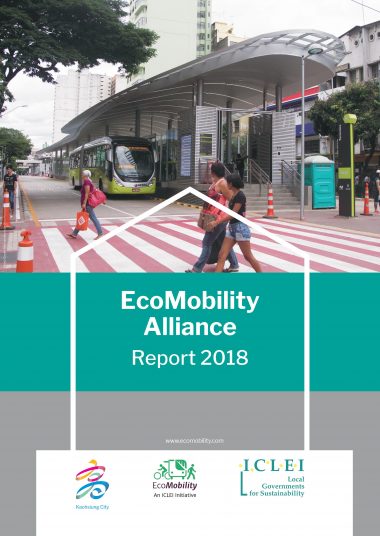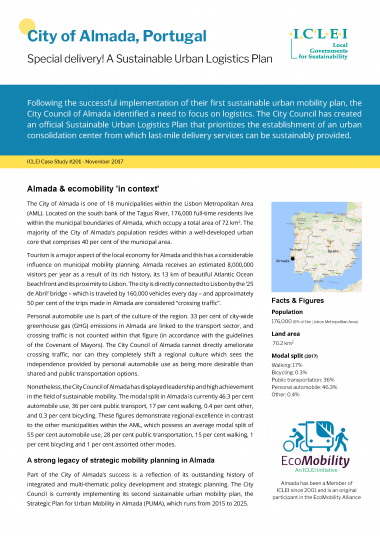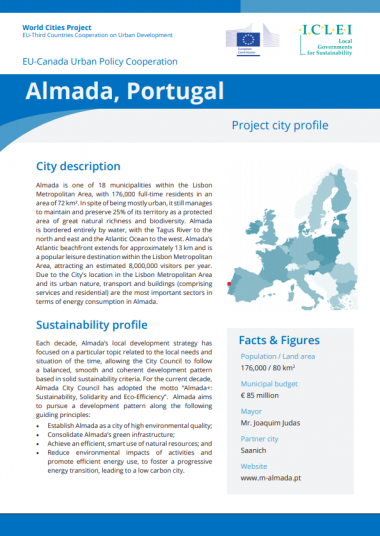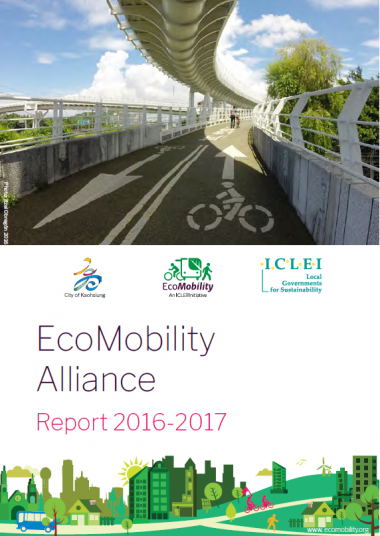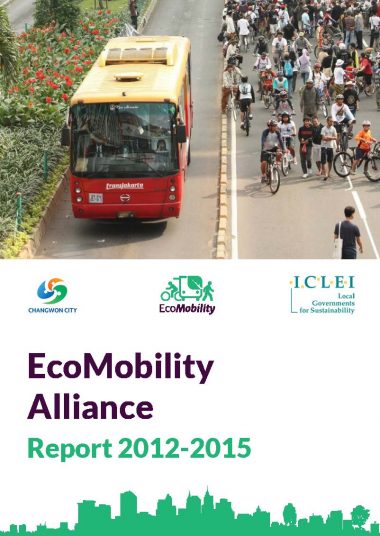Located on the southern bank of Tagus River, Almada forms part of the Lisbon Metropolitan Area (AML). Most residents live in a well-developed urban core that comprises 40 percent of the municipal area. With an industrial background, Almada has since evolved to be a tourism and transportation hub. Almada maintains a long legacy of outstanding mobility planning, including urban logistics, as reflected in the city’s latest Strategic Plan for Urban Mobility (PUMA).
The city presented the first Sustainable Urban Logistics Plan (SULP) in 2014, which is a key part of the PUMA framework. The process of drafting the SULP enabled municipal staff to evaluate current state of logistics within the city and identify potential actions to improve operational efficiency while reducing environmental impact. The SULP allowed the municipality to create the Almada Urban Consolidation Center (ULC), the flagship initiative that serves as a logistic base for gathering shipments from various logistics companies and consolidating delivery. The aim is to reduce the number of trips into the city center, which is dominated by narrow historic streets and improve last-mile delivery with the use of electric vehicles.
In 2018, Almada commenced the Living Lab for Decarbonisation of Almada (DLLab Almada), a project funded by the Portuguese Environmental Fund which translates the concept of circular economy into practice by implementing a set of innovative actions at the vibrant heart of the city with the goal of redesigning urban space. One of the key components of these actions is to reduce space competition between pedestrians and operators during loading/unloading by setting up another UCC with a nearly zero energy building approach. Related interventions include provision of real-time information on public transport modes that serve the area, introducing solar pavements and setting up a FAROL Platform which is a web-based information collation system of the DDLab **.
* ITF Transport Outlook, 2017
** Francisco Gonçalves (2018, March 28). Almada: Innovative project to promote circular economy and decarbonization of urban living. Retrieved from http://www.energy-cities.eu/Almada-Innovative-project-to-promote-circular- economy-and-decarbonization-of
